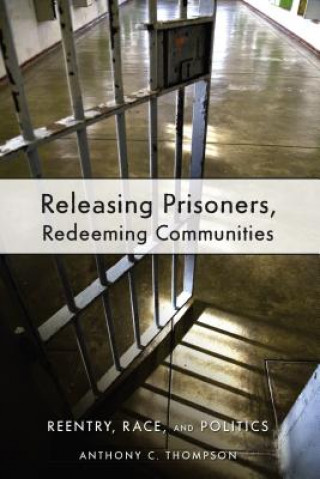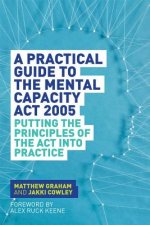
Doručení
Nákupní rádce





Nehodí se? Vůbec nevadí! U nás můžete do 30 dní vrátit
 Dárkový poukaz
V libovolné hodnotě
Dárkový poukaz
V libovolné hodnotě
S dárkovým poukazem nešlápnete vedle. Obdarovaný si za dárkový poukaz může vybrat cokoliv z naší nabídky.
Releasing Prisoners, Redeeming Communities
 Angličtina
Angličtina
 273 b
273 b
30 dní na vrácení zboží
Mohlo by vás také zajímat


In the middle of the first decade of the twenty-first century, African Americans made up approximately twelve percent of the U.S. population but close to forty percent of the U.S. prison population. This shocking disparity is due, in part, to the introduction of tough sentencing laws passed in the 1990s, some in response to the widespread use of crack cocaine, which was sold and used by far more black than white Americans. Now, in the latter half of the decade, the nation is in the midst of the largest multi-year discharge of prisoners in its history. What is likely to happen to these ex-offenders? In Releasing Prisoners, Redeeming Communities, Anthony C. Thompson looks for the answer. Not surprisingly, most African Americans released from prison return to their home communities. However, as Thompson reports, many of these communities are struggling - many are in dire need of health care, adequate and affordable housing, drug treatment programs, social services, and jobs. And ex-offenders have even greater needs than other residents of these strained communities. Most of those who were drug addicts have not received treatment. Nor, for the most part, have they received any useful vocational training. When viewed in its totality, Thompson writes, this is a recipe for disaster. At this time, nearly half of all ex-offenders return to prison within three years and that percentage could easily increase in the years ahead. For Thompson, any discussion of ex-offender re-entry is, de facto, a question of race. After laying out the troubling statistics, he identifies the equally troubling ways in which media and politics have contributed to the problem, especially through stereotyping and racial bias. He reports on the growing number of black women being sent to prison and looks at governmental responses to re-entry, including the shifting roles of parole officers and the use of courts in reintegrating ex-inmates into communities. Well aware of the potential consequences if this country fails to act, Thompson concludes with concrete, realizable ideas of how our policies could, and should, change.
Informace o knize
 Angličtina
Angličtina
Kategorie




 Jak nakupovat
Jak nakupovat





























